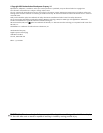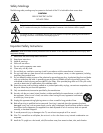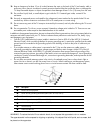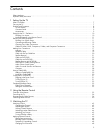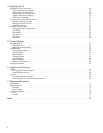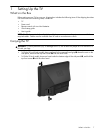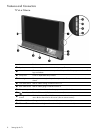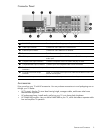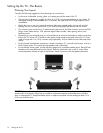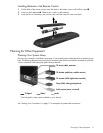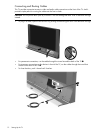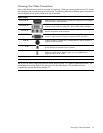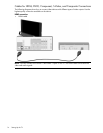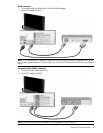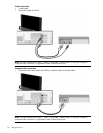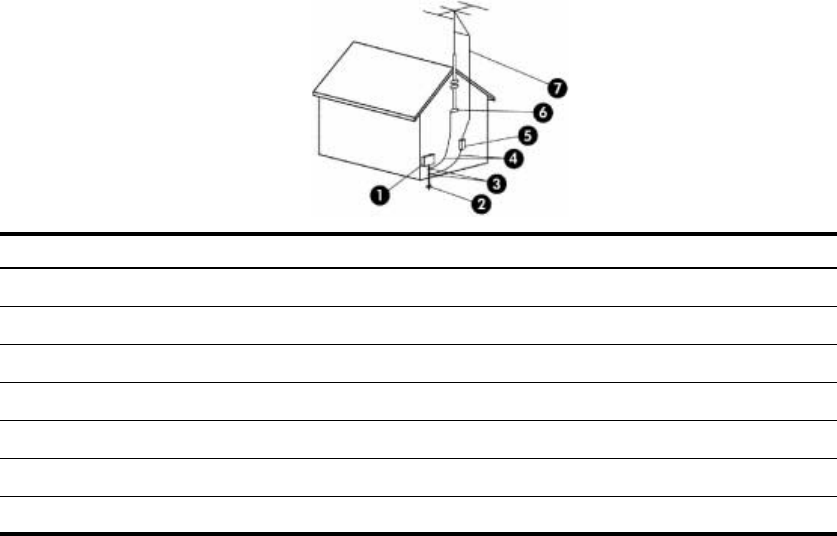
18. Keep a clearance of at least 10 cm (4 inches) between the vents on the back of the TV and nearby walls or
enclosures. Allow free air circulation to prevent excessive heat buildup that could shut down or damage the
TV. Keep flammable objects or objects susceptible to heat damage at least 0.5 m (2 ft) away from the vents.
19. Do not allow liquid, food, or small objects to get inside the TV. If material gets inside, contact HP for
assistance.
20. Use only an approved power cord rated for the voltage and current marked on the product label. Do not
overload any outlet or extension cord above 80% of its rated power or current rating.
21. Do not remove any parts of the TV except as instructed by this manual, and only after allowing the TV to cool
down.
22. Do not operate the TV with any covers removed. Hazardous voltages exist inside the TV. There are no user-
serviceable parts inside except as described elsewhere in this manual.
In addition to these general precautions, be sure to observe the following precautions when using external television
antennas and cable systems with your TV. Failure to observe these precautions could result in fire, bodily injury,
and damage to your equipment.
• Call the CATV (cable television) system installer's attention to Section 820-40 of the NEC (U.S. National
Electrical Code), which provides guidelines for proper grounding and, in particular, specifies that the cable
ground must be connected to the grounding system of the building, as close to the point of cable entry as
practical.
• If an outside antenna or cable system is connected to the TV, be sure the antenna or cable system is
electrically grounded to protect against voltage surges and built-up static charges. Article 810 of the US
National Electrical Code, ANSI/NFPA 70, provides information about proper electrical grounding of the
mast and supporting structure, grounding of the lead-in wire to an antenna discharge unit, size of grounding
conductors, location of antenna-discharge unit, connection to grounding electrodes, and requirements for the
grounding electrode.
• Do not place an outside antenna system in the vicinity of overhead power lines or other electric light or
power circuits or where it can fall into power lines or circuits. When installing an outside antenna system,
take extreme care to avoid touching power lines or circuits because contact with them could be fatal.
Item Description
1
Electric service equipment
2
Power service grounding electrode system (NEC Art 250, Part H)
3
Ground clamps
4
Grounding conductors (NEC Section 810-21)
5
Antenna discharge unit (NEC Section 810-20)
6
Ground clamp
7
Antenna lead-in wir
WARNING: To reduce the risk of fire or electric shock, do not expose this apparatus to rain or moisture.
The apparatus shall not be exposed to dripping or splashing. No objects filled with liquids, such as vases, shall
be placed on the apparatus.




